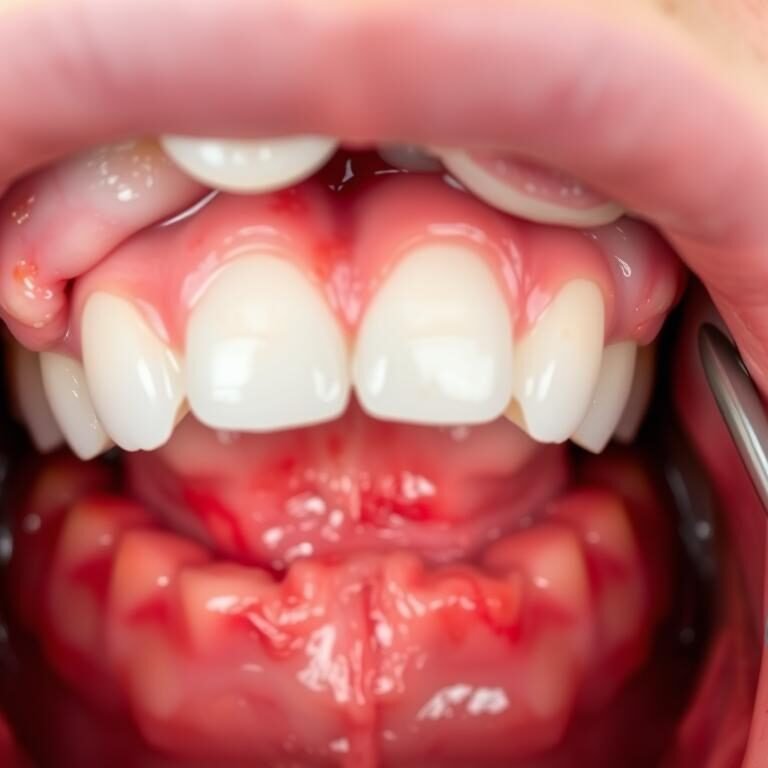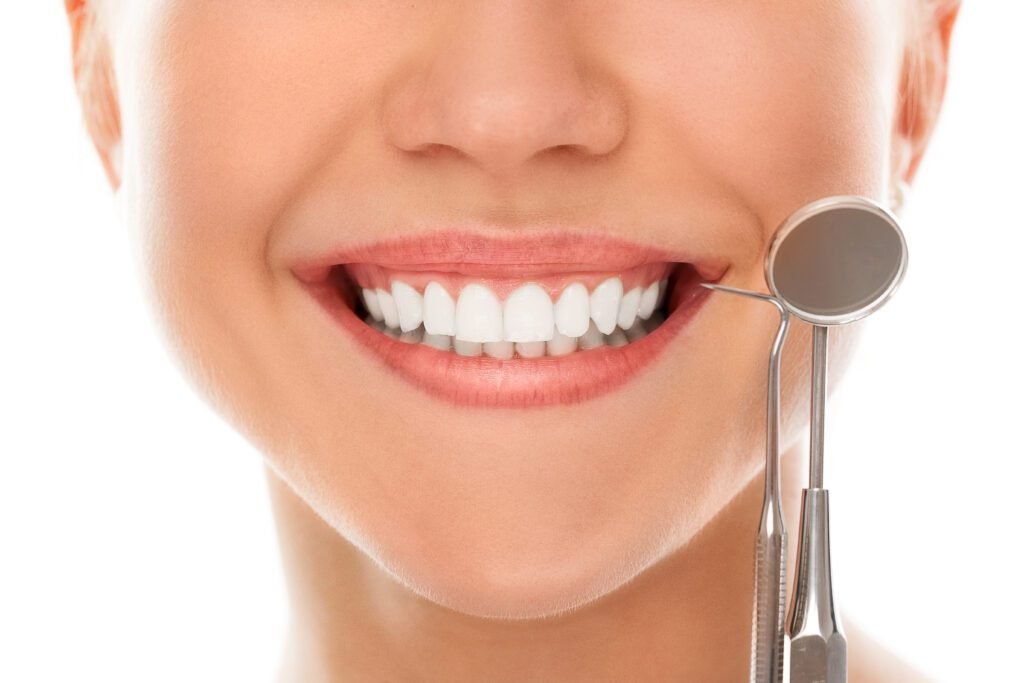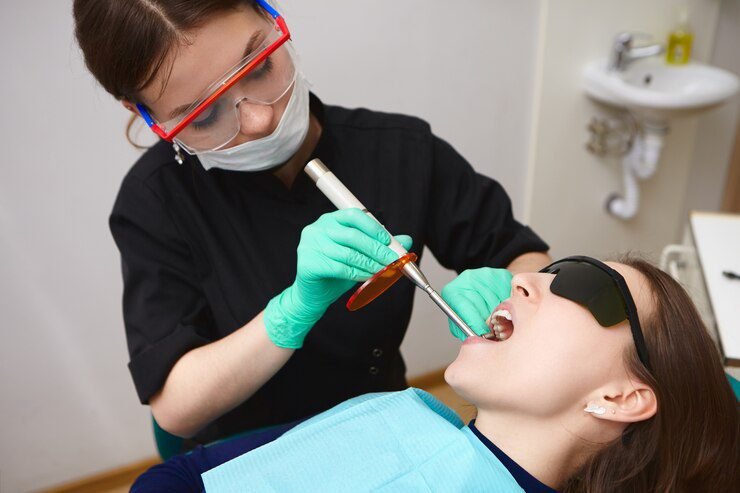Table of Contents
Understanding Dental Anxiety and Phobia: Exploring the Roots of Fear
Dental anxiety and phobia are common psychological conditions that affect a significant number of individuals. These conditions can lead to significant distress and avoidance of dental care, which can have serious consequences for oral health. To better understand and address dental anxiety and phobia, it is essential to explore their roots.
The roots of dental anxiety and phobia can vary from person to person, with factors including previous traumatic dental experiences, fear of pain or needles, a sense of loss of control, and even a genetic predisposition to anxiety. It is important to recognize that dental anxiety and phobia are not purely psychological in nature, but can also be influenced by socio-cultural factors.

By delving into the roots of dental anxiety and phobia, we can gain insights into the specific triggers and underlying mechanisms that contribute to these conditions. This knowledge is crucial for developing effective strategies and interventions to help individuals overcome their fear and receive the dental care they need and deserve.
The Impact of Dental Anxiety on Oral Health: Why It Matters
Dental anxiety is a common issue that affects a significant number of individuals, causing them to feel extreme fear and distress at the thought of visiting the dentist. However, what many people fail to realize is that dental anxiety can have a profound impact on their oral health. When dental anxiety prevents individuals from seeking regular dental care, it can lead to a host of oral health problems.
One of the primary concerns with dental anxiety is the avoidance of routine dental check-ups and cleanings. These preventive measures are crucial in maintaining good oral health and preventing dental issues such as cavities, gum disease, and tooth loss. Without proper dental care, these problems can worsen over time, leading to more complex and costly treatments. Additionally, dental anxiety can also affect the willingness to undergo necessary dental procedures, such as fillings, extractions, or root canals, resulting in delayed or neglected treatment that can further compromise oral health.

It is vital to understand and address the impact of dental anxiety on oral health to ensure that individuals receive the necessary care they need to maintain a healthy and beautiful smile.
Recognizing the Signs and Symptoms of Dental Anxiety: Are You At Risk?
Dental anxiety is a common phenomenon that affects individuals of all ages, from children to adults. While some level of nervousness or unease before a dental appointment is normal, it becomes a cause for concern when it develops into dental anxiety. Recognizing the signs and symptoms of dental anxiety is essential to early intervention and proper management.
| Signs and Symptoms of Dental AnxietyRisk Factors | |
|---|---|
| Increased heart rate | Past traumatic dental experiences |
| Sweating palms | Fear of needles or injections |
| Shaking or trembling | General anxiety disorder |
| Avoidance of dental appointments | Phobias (e.g., fear of dentist, fear of pain) |
| Difficulty breathing | Sensory sensitivities (e.g., sensitive gag reflex) |
| Nervousness or restlessness | Lack of control over the situation |
| Upset stomach or nausea | Negative societal attitudes towards dental care |
One of the most evident signs of dental anxiety is a persistent fear or dread of dental procedures. The thought of going to the dentist may provoke intense anxiety and even panic attacks in some individuals. Physical symptoms such as sweating, increased heart rate, and trembling may accompany these feelings of fear. Additionally, individuals with dental anxiety may exhibit avoidance behaviors, such as canceling or avoiding dental appointments altogether. It is important to note that dental anxiety can have a significant impact on oral health, as individuals who are consumed by their fear often neglect routine dental care, which can lead to dental problems worsening over time.
Debunking Common Myths about Dental Procedures: Separating Fact from Fiction
The fear of dental procedures is a common concern among many individuals, often fueled by myths and misconceptions. It is important to separate fact from fiction when it comes to debunking common myths about dental procedures.
One prevalent myth is that dental procedures are always painful. While it is understandable to associate dental treatments with discomfort, advancements in anesthesia and pain management techniques have significantly minimized pain during procedures. Dentists prioritize the comfort of their patients and employ various measures, such as local anesthesia, nitrous oxide sedation, and even conscious sedation, to ensure a pain-free experience. Additionally, dentists are skilled professionals who undergo extensive training to deliver procedures with precision and minimal discomfort. It is crucial to trust in the expertise of the dentist and communicate any concerns or anxieties to ensure a comfortable experience.
Another commonly believed myth is that dental procedures are harmful to teeth and oral health. On the contrary, dental procedures aim to improve oral health and treat various conditions, ranging from tooth decay to gum disease. Procedures such as fillings, root canals, and dental crowns are designed to restore oral health, protect teeth from further damage, and prevent the need for tooth extraction. Regular dental check-ups, cleanings, and necessary treatments are crucial for maintaining a healthy smile and overall well-being. It is essential to remember that dental procedures are carried out by professionals who prioritize the health and best interests of their patients.
Building Trust: Finding the Right Dentist to Overcome Dental Anxiety
Finding the right dentist is crucial when it comes to overcoming dental anxiety. Building trust with your dentist can help alleviate your fears and ensure a positive experience during your dental visits. But how do you find a dentist who understands your anxiety and can provide the care you need?
Start by seeking recommendations from family, friends, or healthcare professionals. Word-of-mouth referrals often lead to finding a dentist who specializes in treating patients with dental anxiety. Additionally, conducting online research and reading patient reviews can provide valuable insights into a dentist’s approach and demeanor. Look for dentists who prioritize patient comfort, utilize calming techniques, and offer sedation options if necessary. Remember that building trust takes time, so don’t hesitate to schedule a consultation with potential dentists to discuss your concerns and evaluate if they are the right fit for you.
| Aspect | Description |
|---|---|
| Referrals | Seek recommendations from friends, family, or healthcare providers who can vouch for a dentist’s credibility and bedside manner. |
| Online Reviews | Check online platforms such as Google, Yelp, or Healthgrades for reviews and ratings from other patients. |
| Communication | Look for a dentist who communicates openly, listens to concerns, and explains procedures thoroughly, helping alleviate anxiety. |
| Atmosphere | Evaluate the ambiance of the dental office; a comfortable and welcoming environment can ease anxiety. |
| Sedation Options | Inquire about sedation options like nitrous oxide or oral sedatives for managing anxiety during dental procedures. |
| Technology | Consider a dentist who utilizes modern technology and equipment, which can improve comfort and efficiency during treatments. |
| Patient Education | Choose a dentist who prioritizes patient education, providing information on oral health practices and treatment options. |
| Trial Appointment | Schedule a preliminary appointment to assess the dentist’s approach and how comfortable you feel in their care. |
| Trustworthiness | Trust your instincts; if you feel uneasy or mistrustful, continue your search until you find a dentist you’re fully comfortable with. |
Communication is Key: Discussing Your Dental Anxiety with Your Dentist
It is not uncommon for individuals to experience anxiety or fear when it comes to visiting the dentist. This dental anxiety can manifest in various ways, including feelings of unease, nervousness, or even panic. However, it is crucial to understand that open and effective communication with your dentist is essential in addressing and managing dental anxiety.
Discussing your dental anxiety with your dentist allows them to gain a better understanding of your concerns and tailor their approach accordingly. By sharing your fears and anxieties, your dentist can adjust their communication style, provide reassurance, and explain the steps involved in dental procedures. This open dialogue fosters a sense of trust and understanding, creating a safe and supportive dental experience for you.
Remember, your dentist is well aware of the common fears and anxieties surrounding dental procedures, and they are there to help you through it. Do not hesitate to voice your concerns and seek clarity on any aspect of your treatment. By having an open line of communication with your dentist, you can work together to alleviate your dental anxiety and ensure a positive dental experience.
The Power of Distraction: Techniques to Calm Your Anxiety during Dental Procedures
Distraction techniques can be incredibly effective in helping to calm anxiety during dental procedures. By redirecting your focus away from the dental chair and the instruments, these techniques can help to reduce both physical and emotional discomfort. One popular distraction technique is listening to music. Bringing your favorite playlist or using noise-canceling headphones to drown out the sounds of the dental office can create a soothing and familiar environment. Studies have shown that listening to music can increase relaxation and decrease anxiety levels during dental procedures.
Another powerful distraction technique is visualization. By closing your eyes and picturing yourself in a calming and peaceful environment, such as a beach or a serene garden, you can shift your attention away from the dental procedure and onto a more pleasant and relaxing scene. This technique can help to create a sense of calmness and control, as well as reduce feelings of anxiety. Visualizing positive outcomes and successful completion of the procedure can also help to alleviate any worry or fear.
Incorporating distraction techniques into your dental visits can significantly improve your experience and help to alleviate anxiety. By finding the right technique that works for you, whether it’s listening to music or visualizing a serene setting, you can take control of your anxiety and create a more positive and comfortable dental experience.
Sedation Dentistry: Exploring Options for a Relaxing Dental Experience
Sedation dentistry offers a range of options for patients who experience dental anxiety or fear. With the use of certain medications, the patient can enter into a relaxed and calm state during their dental procedure. As a result, individuals who have previously avoided seeking dental care due to their anxiety can now receive the treatment they need without distress.
One common form of sedation used in dentistry is oral sedation. This involves the patient taking a prescribed medication prior to their appointment, which helps them feel more relaxed and at ease during the procedure. Another option is intravenous (IV) sedation, where the medication is administered directly into the patient’s bloodstream. This type of sedation provides a deeper level of relaxation and can be adjusted throughout the procedure to ensure the patient’s comfort.

It is important to note that sedation dentistry is only available in certain cases and should always be administered by a qualified dentist or oral surgeon. The right sedation option will depend on the patient’s level of anxiety, the complexity of the procedure, and their medical history. Therefore, it is essential to consult with a dental professional to determine the most suitable sedation option for each individual.
Cognitive Behavioral Therapy: Unlocking Strategies to Overcome Dental Anxiety
Cognitive Behavioral Therapy (CBT) is an effective approach to overcoming dental anxiety. By targeting negative thoughts and behaviors associated with dental visits, CBT helps individuals reframe their perceptions and develop effective coping strategies. Through collaboration between the dentist and patient, CBT can be tailored to address specific fears and concerns, promoting a more relaxed and positive dental experience.
One of the key strategies employed in CBT is cognitive restructuring. This involves identifying and challenging negative thoughts and beliefs related to dental visits. By examining the evidence supporting these thoughts, individuals can gain a more balanced and realistic perspective. For example, someone who fears dental procedures may hold the belief that they will experience unbearable pain. Through CBT, this belief can be replaced with more accurate information, such as the advancements in anesthesia and pain management techniques. This process of cognitive restructuring helps to alleviate anxiety and build confidence in the dental setting.
In addition to cognitive restructuring, CBT also incorporates behavioral techniques to address dental anxiety. Gradual exposure to feared situations is a common component of CBT, allowing individuals to gradually increase their tolerance for dental visits. This may involve starting with non-invasive procedures, such as dental cleanings, and gradually progressing to more complex treatments. By introducing these experiences in a controlled and supportive environment, individuals can overcome their fears and gain confidence in their ability to handle dental procedures.

Overall, cognitive behavioral therapy offers a powerful tool for individuals struggling with dental anxiety. By addressing negative thoughts and behaviors, CBT empowers individuals to take control of their dental fears and move towards a healthier and more relaxed dental experience.
Gradual Exposure Therapy: Taking Small Steps towards Conquering Your Fear
Gradual Exposure Therapy is a behavioral technique that has shown great promise in helping individuals overcome their dental anxiety. The concept behind this therapy is simple: by gradually and systematically exposing oneself to the feared situation (in this case, dental procedures), individuals can desensitize themselves to their fears and learn to manage their anxiety more effectively.
This therapy involves starting with small, less anxiety-provoking tasks and gradually working towards more challenging ones. For example, a person with dental anxiety may begin by simply visiting the dental clinic and observing the environment without any treatment. Once they feel comfortable with this step, they can then progress to sitting in the dental chair for a short period of time, followed by having a non-invasive procedure done. With each successful step, individuals gain confidence and reduce their anxiety levels, paving the way for more complex dental treatments in the future.
Gradual Exposure Therapy not only helps individuals conquer their dental fears but also empowers them to take control of their oral health. By breaking down the fears into manageable steps, patients can build resilience and develop the necessary coping skills to overcome their anxiety. The process fosters a sense of accomplishment and self-efficacy, enabling individuals to maintain good oral health and seek necessary dental care without overwhelming fear or anxiety.
Mindfulness and Relaxation Techniques: Cultivating a Calm State of Mind
Mindfulness and relaxation techniques are powerful tools that can be utilized to cultivate a calm state of mind, particularly when it comes to managing dental anxiety. These techniques involve focusing one’s attention on the present moment, while acknowledging and accepting any thoughts or feelings that may arise without judgment or attachment. By practicing mindfulness and relaxation, individuals can effectively reduce stress and anxiety levels, allowing for a more positive dental experience.
Deep breathing exercises are one such technique that can be employed during dental procedures. By taking slow, deep breaths and focusing on the sensation of the breath entering and leaving the body, individuals can activate the body’s relaxation response, which counteracts the body’s stress response. Incorporating visualization techniques can also be beneficial. Envisioning oneself in a calm and peaceful environment, such as a serene beach or tranquil garden, can help divert attention away from any discomfort or anxiety. Overall, incorporating mindfulness and relaxation techniques into dental visits can vastly improve the experience for individuals who struggle with dental anxiety.
The Role of Dental Education: Empowering Patients to Overcome Anxiety
Dental anxiety can be a debilitating condition, making it difficult for individuals to seek the dental care they need. However, one powerful tool in empowering patients to overcome their anxiety is dental education. By educating patients about dental procedures, dispelling misconceptions, and providing information about anxiety management techniques, dental professionals have the opportunity to empower their patients and help them overcome their fears.
Through dental education, patients can gain a better understanding of the procedures they may undergo, reducing uncertainty and fear. By explaining the step-by-step process of a dental visit, discussing the tools and equipment used, and addressing common concerns, dental professionals can demystify the experience and alleviate anxiety. In addition, dental education can play a critical role in dispelling myths and misconceptions about dental procedures, such as the use of anesthesia or the level of discomfort involved. By providing accurate and factual information, dental professionals can help patients make informed decisions and reduce anxiety.
Moreover, dental education equips patients with valuable anxiety management techniques. Techniques such as deep breathing exercises, visualization, and distraction techniques can help patients relax during procedures, allowing for a more comfortable dental experience. By teaching patients these strategies, dental professionals empower them to take control of their anxiety and navigate the dental chair with greater ease.
In conclusion, dental education is a powerful tool in empowering patients to overcome their dental anxiety. By providing information, dispelling myths, and teaching anxiety management techniques, dental professionals can help patients feel more confident and comfortable in seeking dental care. Through continued education and support, dental professionals can make a positive impact on their patients’ oral health and overall well-being.
Coping with Dental Anxiety: Strategies for Self-Care and Stress Management
When it comes to maintaining good oral health, it is important to address and overcome dental anxiety. Implementing effective coping strategies for self-care and stress management can greatly improve your dental experience and overall well-being. Here are some strategies to help you navigate through your dental anxiety:
Firstly, communication is key. Openly discussing your fears and concerns with your dentist can help them tailor their approach to your specific needs. Letting them know about your anxiety can allow them to provide extra support and reassurance during your dental procedures. Additionally, familiarize yourself with the dental procedures you will undergo. Understanding what to expect can help alleviate anxiety. Look for credible resources or ask your dentist for educational materials that explain the procedure step by step.
Secondly, practicing relaxation techniques can help ease anxiety. Prior to your appointment, engage in activities such as deep breathing exercises, meditation, or listening to calming music. These techniques can help you achieve a state of calm and reduce stress. Distraction techniques, such as using headphones to listen to your favorite podcast or audiobook during the procedure, can also help divert your attention from dental anxiety.
Support Systems: Seeking Emotional Support to Overcome Dental Phobia
Dealing with dental phobia can be overwhelming, but it’s important to remember that you don’t have to face it alone. Seeking emotional support can make a world of difference in overcoming your fears and anxieties about dental procedures. Whether it be from friends, family, a support group, or a therapist, having a strong support system can provide you with encouragement, understanding, and guidance throughout your dental journey.
Research has shown that emotional support can significantly help individuals with dental phobia feel more empowered and confident in managing their anxiety. By having someone to talk to about your fears and concerns, you can gain insights and coping strategies that may prove invaluable during dental appointments. Moreover, sharing your experiences with others who have gone through similar challenges can help create a sense of belonging and reduce feelings of isolation. Remember, reaching out for support is a sign of strength, and it can open up new doors to overcoming dental phobia.
Success Stories: Inspiring Tales of Individuals Who Overcame Dental Anxiety
There is no denying that dental anxiety can be a real challenge for many people. The fear of dental procedures can lead to avoidance of necessary treatments, which in turn can have serious consequences for oral health. However, there are individuals who have triumphed over their dental fears and emerged with a newfound sense of confidence and well-being.
Take Sarah, for example. She had been plagued by dental anxiety for years, causing her to skip regular check-ups and neglect her oral hygiene. But one day, she decided enough was enough and sought help from a compassionate and understanding dentist. With the dentist’s gentle demeanor and patient explanations of each step, Sarah gradually felt more comfortable during her visits. Through a combination of relaxation techniques and open communication with her dentist, Sarah was able to conquer her dental anxiety and take control of her oral health.
Another inspiring story comes from Mike, who had an intense fear of needles and could never imagine sitting through any dental procedure. Understanding his fears, his dentist proposed a sedation dentistry option, where he would be put under mild sedation throughout the procedure. This enabled Mike to receive the necessary treatments without feeling any discomfort or anxiety. Over time, as Mike saw that his dental health was improving, his fears began to diminish, and he even opted for non-sedated treatments.
These success stories highlight the power of finding the right dental professional who understands and supports individuals with dental anxiety. With the right approach, communication, and sometimes the aid of sedation dentistry, individuals can overcome their fears and achieve optimal oral health.
Maintaining good oral health is essential for overall well-being.
Regular dental care plays a crucial role in preventing dental problems and ensuring a healthy smile. To maintain optimal oral health, it is important to follow a comprehensive dental maintenance routine that includes regular brushing, flossing, and regular visits to the dentist.
Regular brushing and flossing help remove plaque and prevent the buildup of harmful bacteria, which can lead to tooth decay and gum disease. It is recommended to brush your teeth at least twice a day for two minutes each time using fluoride toothpaste and a soft-bristled toothbrush. Flossing should be done once a day to remove plaque and food particles from between the teeth and along the gumline. In addition to regular oral hygiene practices, it is important to visit your dentist every six months for a professional cleaning and examination. During these routine visits, your dentist will check for any signs of dental problems, clean your teeth thoroughly, and provide guidance on maintaining good oral health at home. By following a comprehensive dental maintenance routine, you can ensure that your smile remains healthy and beautiful for years to come.
What causes dental anxiety and phobia?
Dental anxiety and phobia can stem from various factors such as past traumatic dental experiences, fear of pain or needles, feeling of loss of control, and negative perceptions or stories heard from others.
How does dental anxiety affect oral health?
Dental anxiety can lead to avoidance of dental visits, neglecting oral hygiene practices, and delayed treatment, which can result in the progression of oral health issues like tooth decay, gum disease, and other dental complications.
How can I identify if I have dental anxiety?
Signs and symptoms of dental anxiety may include increased heart rate, sweaty palms, feeling of panic or terror, difficulty sleeping before dental appointments, and a strong desire to avoid dental visits altogether.
Are there any misconceptions about dental procedures that contribute to anxiety?
Yes, some common myths about dental procedures include the belief that they are always painful, that dentists are not empathetic, and that procedures are prolonged and uncomfortable. It is important to separate these misconceptions from the reality of modern dental practices.
How can I find a dentist who understands and can help me overcome dental anxiety?
To find a dentist who specializes in treating patients with dental anxiety, you can ask for recommendations from friends, family, or your primary care physician. It is also helpful to seek dentists who offer sedation dentistry or advertise their expertise in dealing with anxious patients.
How should I communicate my dental anxiety to my dentist?
Open and honest communication is key. You can inform your dentist about your fears and concerns before the appointment, discuss any specific triggers that make you anxious, and ask them to explain procedures thoroughly to alleviate your anxiety.
What techniques can help calm my anxiety during dental procedures?
Various distraction techniques like listening to music, watching TV, or using relaxation techniques such as deep breathing or visualization can be helpful in reducing anxiety during dental procedures.
What options are available for a more relaxing dental experience?
Sedation dentistry offers options such as nitrous oxide (laughing gas), oral sedatives, and intravenous sedation, providing a more relaxed state during dental treatments.
How can cognitive behavioral therapy (CBT) assist in overcoming dental anxiety?
CBT can help individuals identify negative thought patterns related to dental anxiety and replace them with more positive and realistic thoughts. It also involves gradual exposure to dental situations, allowing patients to slowly desensitize themselves to the fear.
What are some self-care strategies to cope with dental anxiety?
Self-care strategies include practicing relaxation techniques, maintaining good oral hygiene habits, seeking emotional support, and engaging in stress management activities such as exercise or meditation.
How can dental education empower patients to overcome anxiety?
Dental education can help patients understand the nature of dental procedures, dispel common myths, and provide knowledge about pain management techniques, allowing individuals to feel more in control and less anxious during dental visits.
Where can I find emotional support to help me overcome dental phobia?
Seeking emotional support from friends, family, or support groups can be beneficial. Additionally, some dental practices have dental anxiety support programs or counselors who specialize in helping patients with dental phobia.
Are there any success stories of individuals who have conquered dental anxiety?
Yes, there are inspiring stories of individuals who have successfully overcome their dental anxiety through various techniques, therapies, and support systems. These success stories can provide hope and motivation for others facing similar challenges.











